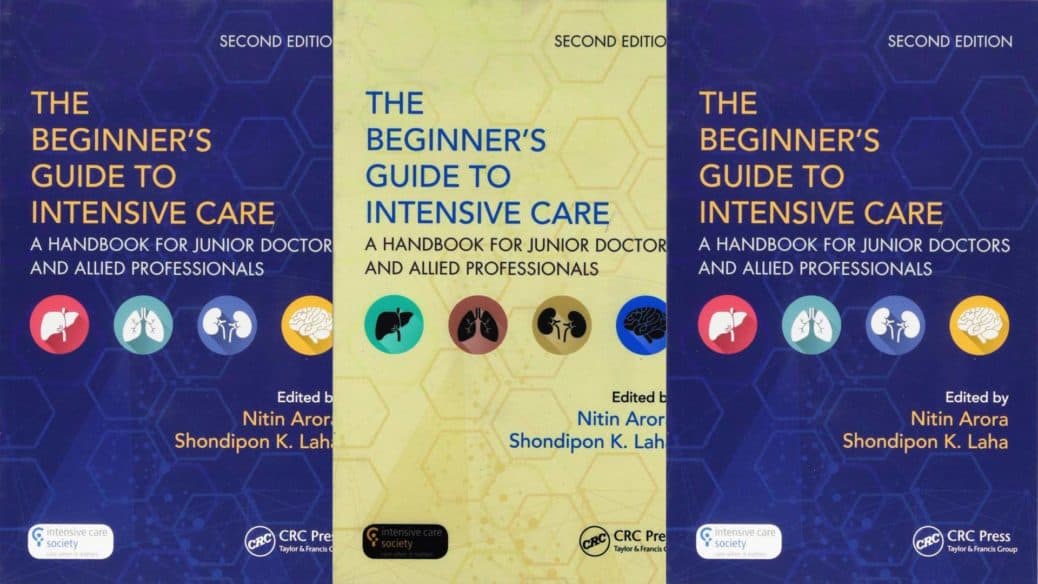THE BEGINNER’S GUIDE TO INTENSIVE CARE – A HANDBOOK FOR JUNIOR DOCTORS AND ALLIED PROFESSIONALS
Second edition
Editors: Arora N, Laha SK
Taylor and Francis, 2018 ISBN: 9781138035782
The authors are clear in their introduction that this is not a book to replace traditional textbooks but instead is intended to be a guide for those to whom intensive care is all new, and it certainly fulfills that remit. Whether doctor, medical student or allied health professional this book is likely to prove useful to those embarking on a career in intensive care, an environment that is often daunting at first.
The book is split into 8 sections, the first of which ‘Basics’ certainly lives up to its name with an outline of what to expect from a day on a unit and descriptions of who you may encounter there. Even to the relative novice it seems almost too simple at times, but by removing any expectation of prior knowledge it is likely to answer all the questions people are too embarrassed to ask. From this gentle beginning it then expands, and with the help of small vignettes, goes into more detail with sections on common presentations, their management, drugs and equipment. The book’s main strength is its breadth, and in addition to these more obvious topics it also includes sections on burnout and post- ITU syndrome.
Each section features ‘key learning points’ which are mapped to the ICM curriculum, and for those who want more information, there are the ‘further reading’ lists at the end of each chapter which direct the reader to other useful sources. It is therefore not only suitable for newbies but will also be a valuable resource for those who are at a later stage of their training.
Despite a large number of contributors from different backgrounds, the book retains a cohesive style throughout and flows nicely from beginning to end. It is simple and easy to navigate structure means it also lends itself well to more sporadic reading, allowing you to dip in and out of topics as desired.
Whilst generally the content seems to be pitched well for its target market, there is the occasional hiccup, for example the social media section, which leaves you wondering which junior doctors need the concept of Twitter explaining to them… (to be fair, the book is intended for AHPs as well- many of whom are not social media savvy at all! -SO)
By Kate Diomede
Clinical Fellow in Intensive care Medicine, St Bartholomew’s Hospital, London
And Olusegun Olusanya
Specialty Trainee in Intensive Care Medicine, St Mary’s Hospital, London
COI: Dr Olusanya contributed two chapters to the book
View it on Amazon UK here
Or Booktopia

























